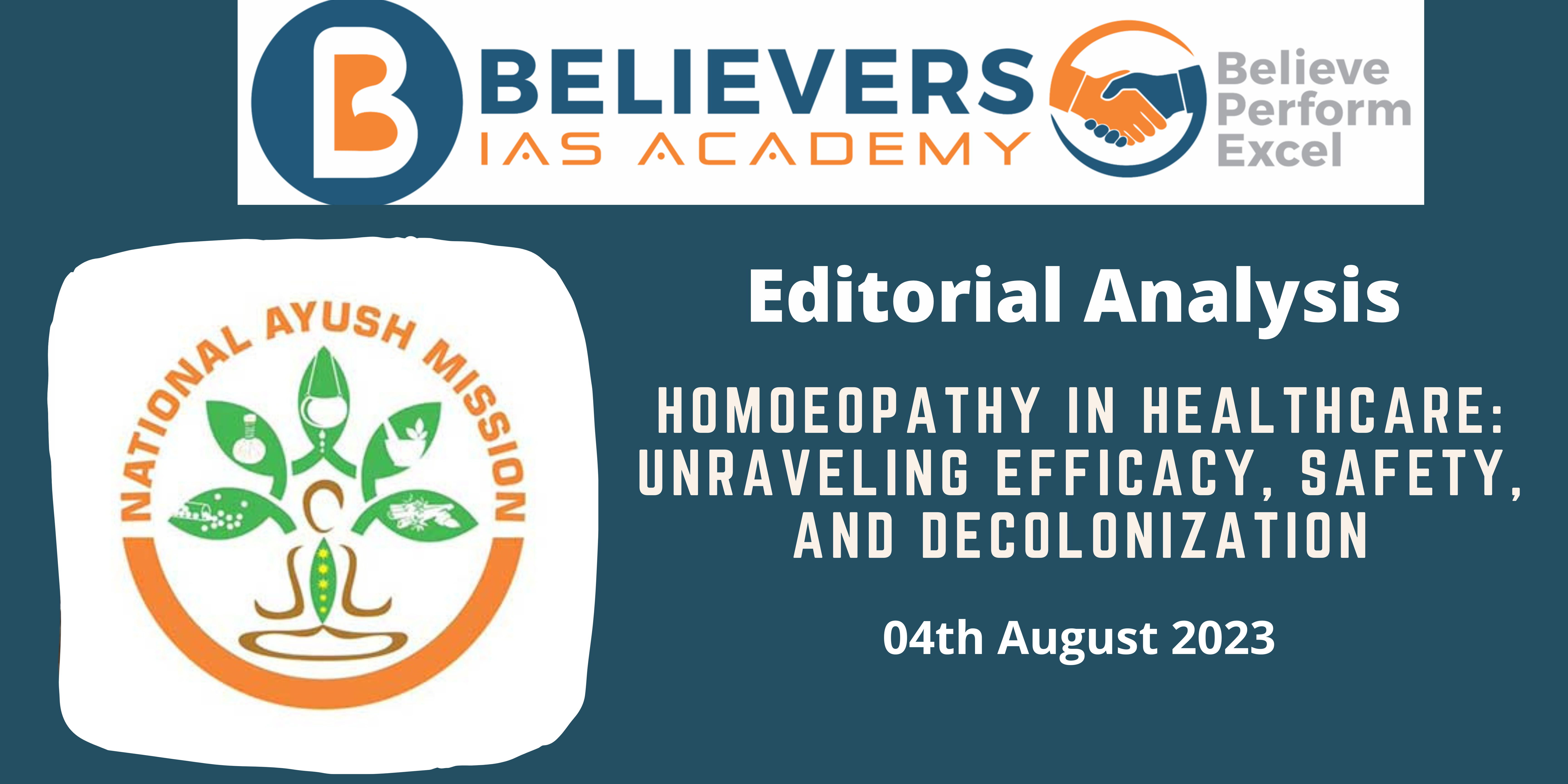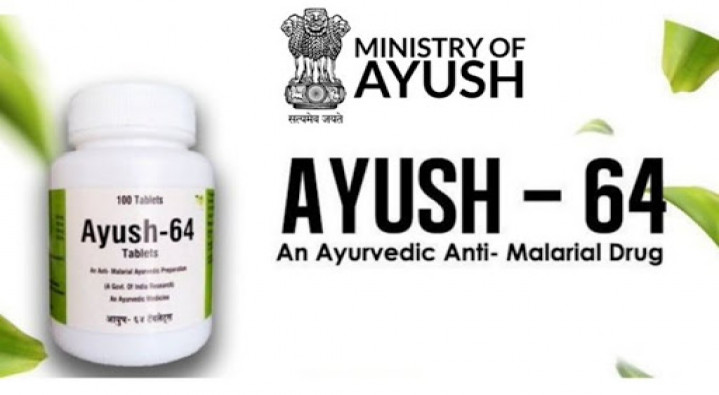Homoeopathy in Healthcare: Unraveling Efficacy, Safety, and Decolonization
Context:
The integration of ‘AYUSH’ medicinal systems into mainstream healthcare with the goal of achieving universal health coverage and “decolonizing medicine” has gained momentum. However, this approach demands that each participating system meets essential safety and efficacy standards. Among these systems, homoeopathy has come under scrutiny for not meeting such criteria. Despite its flaws, proponents of homoeopathy have recently advocated for its expansion, citing demand and decolonization as reasons to overlook its shortcomings.
Relevance:
GS – 02 (Government Policies & Interventions) (Health) (Statutory Bodies) (Issues Relating to Development)
Prelims:
- Ministry of AYUSH
- AYUSH Drugs
- Drug Regulations
Mains Question:
- Discuss the challenges and prospects of integrating homoeopathy into mainstream healthcare, considering its efficacy, safety, and decolonization arguments. 150 words
Dimensions of the Article:
- Efficacy and Safety of Homoeopathy
- Homoeopathy and Standards
- Decolonizing Medicine and Homoeopathy
Efficacy and Safety of Homoeopathy
- The evidence surrounding homoeopathy’s efficacy is dubious at best. The first comprehensive double-blind randomized controlled trial, the Nuremberg Salt Test in 1835, discredited the claims made by homeopaths, attributing the observed effects to imagination, self-deception, or even fraud.
- At the pinnacle of the evidence-based medicine hierarchy lie systematic reviews and meta-analyses, which critically evaluate evidence from various studies. Numerous such reviews have consistently shown that homoeopathic treatments lack clinically significant effects across ailments, populations, and treatment approaches. Even the few reviews supporting homoeopathy’s efficacy have raised concerns about the low quality of evidence and cautioned against its widespread clinical use.
- Alarming revelations indicate that over half of the 193 homoeopathic trials conducted in the past two decades were not registered. Surprisingly, unregistered trials demonstrated some evidence of efficacy, while registered ones did not, raising questions about the reliability and validity of the generated evidence.
- Furthermore, authoritative institutions like the World Health Organization (WHO) have warned against using homoeopathy to treat serious conditions such as HIV, tuberculosis, and malaria, as well as common ailments like flu and diarrhea in infants. In contrast to popular belief, homoeopathic treatments have been linked to non-fatal and fatal adverse events, causing delays in the application of evidence-based clinical care and, in some instances, leading to injuries and fatalities.
Homoeopathy and Standards
- Advocates of homoeopathy often argue that the standards employed in evidence-based medicine are inadequate to evaluate its “holistic effects.” However, this claim does not withstand scrutiny.
- These standards are not arbitrarily chosen by allopathic practitioners; they are developed collaboratively by a global community, including epidemiologists, biostatisticians, and quality improvement researchers, beyond just clinicians. These standards have effectively weeded out ineffective practices from allopathic medicine.
- Proponents of homoeopathy have failed to develop valid alternative evidence synthesis frameworks that could be accepted by critics and prove the efficacy and safety of their practices.
- The allegation that evidence-based medicine is “reductionist” is outdated, as modern practitioners have embraced biopsychosocial approaches endorsed by the WHO.
- Evidence-based medicine not only establishes empirical evidence but also strives to understand the underlying mechanisms.
- Regrettably, homoeopathy lacks concrete evidence for its proposed mechanisms of action, unlike many modern medical practices that have adapted based on growing scientific evidence.
Decolonizing Medicine and Homoeopathy
- While embracing a pluralistic approach in medicine can facilitate the decolonization of healthcare, homoeopathy’s introduction in India during the colonial period raises concerns. Introduced by Austrian physician J.M. Honigberger in 1839, homoeopathy cannot claim the status of a traditional practice in Indian history.
- The argument to reject homoeopathy is grounded not only in its colonial origins but also on its lack of evidence for efficacy, some evidence indicating potential safety risks, and the absence of significant progress in understanding its mechanisms of action over the last century.
- Citing testimonials from luminaries like Gandhi and Tagore, proponents of homoeopathy attempt to lend support to its cause. However, scant evidence exists to substantiate their claims, and even archival records fail to provide substantial endorsement by Tagore. Therefore, using decolonization as a reason to advocate for homoeopathy lacks a robust foundation.
Way Forward
In the pursuit of universal health coverage, India must prioritize evidence-based and ethics-driven medicine. By upholding practices with proven efficacy and safety, embracing biopsychosocial approaches, and rejecting homoeopathy’s unsubstantiated claims, the country can foster a healthcare system that truly meets the needs of its diverse population.
Conclusion
The drive to integrate ‘AYUSH’ medicinal systems into mainstream healthcare is commendable, but it necessitates stringent adherence to safety and efficacy standards. Homoeopathy, however, falls short in meeting these criteria, as evidence suggests weak efficacy and potential safety risks. India’s journey towards universal health care must be guided by evidence-based and ethics-driven principles, leaving behind unproven practices and embracing those that contribute to the wellbeing of its citizens.




